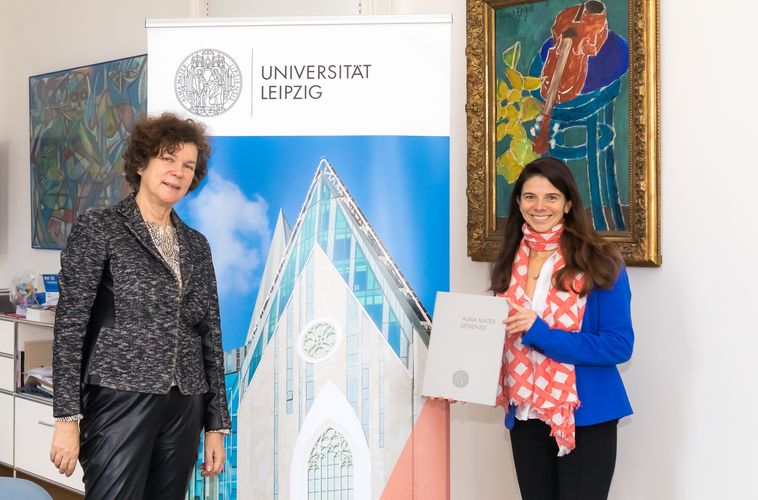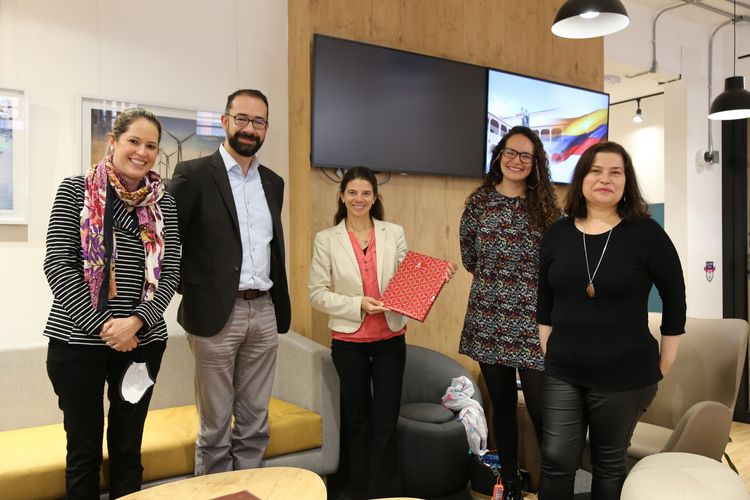“We have already had excellent experience working with one of the largest Colombian universities,” said Rector Schücking. “The peace process in particular, which was initiated in 2016, offers a wide range of opportunities for knowledge transfer for researchers as well as students from both countries.” According to the German Academic Exchange Service (DAAD), Colombia ranks second behind Brazil with a good 3500 Latin American students enrolled at German universities.
The two universities have put two research priorities first for their cooperation. A current research project has already been funded through the German Research Foundation (DFG). Entitled The dynamics between health and security during the COVID-19 pandemic in conflict-affected territories in Colombia, the researchers are exploring the impact of the pandemic on populations in fragile, conflict-ridden areas in southern Colombia. They are paying particular attention to rural areas characterised by an absence of basic health infrastructure and widespread insecurity due to the presence of armed groups and a lack of government support. The first field studies have already been carried out by researchers from the two universities in collaboration with the Pontificia Universidad Javeriana. “Very interesting dynamics are becoming apparent, because many communities have not relied on state measures, but have protected themselves. It is thanks to the cooperation that field research under such difficult circumstances became possible at all,” said Professor Solveig Richter, Heisenberg Professor for International Relations and Transnational Politics at the Faculty of Social Sciences and Philosophy at Leipzig University. She was instrumental in establishing the cooperation between Bogotá and Leipzig and oversees several research projects.
The second research topic is the promotion of the peace process in the Latin American country. Here, the Leipzig Research Centre Global Dynamics (ReCentGlobe), as a Central Institution of Leipzig University, will lead the scientific work together with CAPAZ, the German-Colombian Peace Institute. “The peace process has been stalled by the policies of the current government,” emphasised Professor Richter. “In an optimistic scenario, one could expect de-escalation and a resumption of peaceful dialogue from social and political actors after the elections this year. The close cooperation and financial support from Germany will allow us to closely analyse the impact of the elections with our partners and draw conclusions for the further peace process.”
The cooperation agreement also offers both universities great potential to expand their research cooperation to other key areas. The topic of biodiversity, for example, is highly relevant for both partners, as Colombia’s biodiversity is second only to that of Brazil. Some ten per cent of all known animal and plant species have been catalogued in Colombia. Colombia is an excellent example of how closely bio-ecological and political-social dynamics are interwoven. “In the context of armed conflict, an interdisciplinary approach is important when considering and analysing these factors. This results in a broad field of research for academics at both universities,” said Solveig Richter.
More information:
Nuestra U Periódico Nova Et Vetera - Universidad del Rosario (urosario.edu.co)

